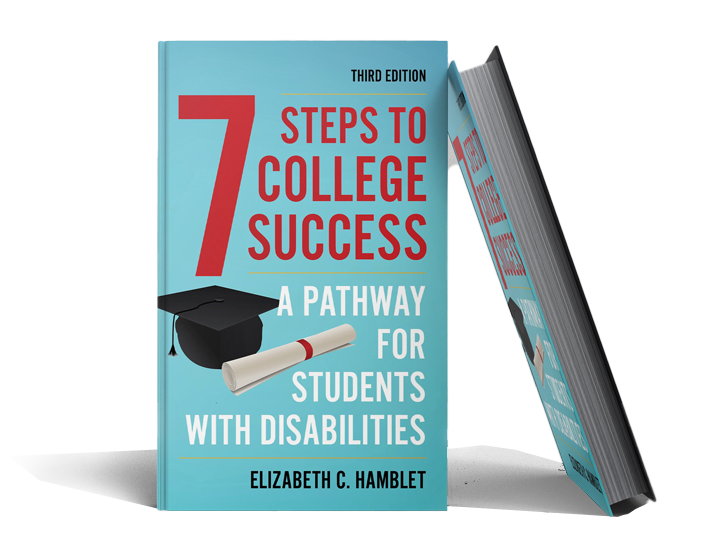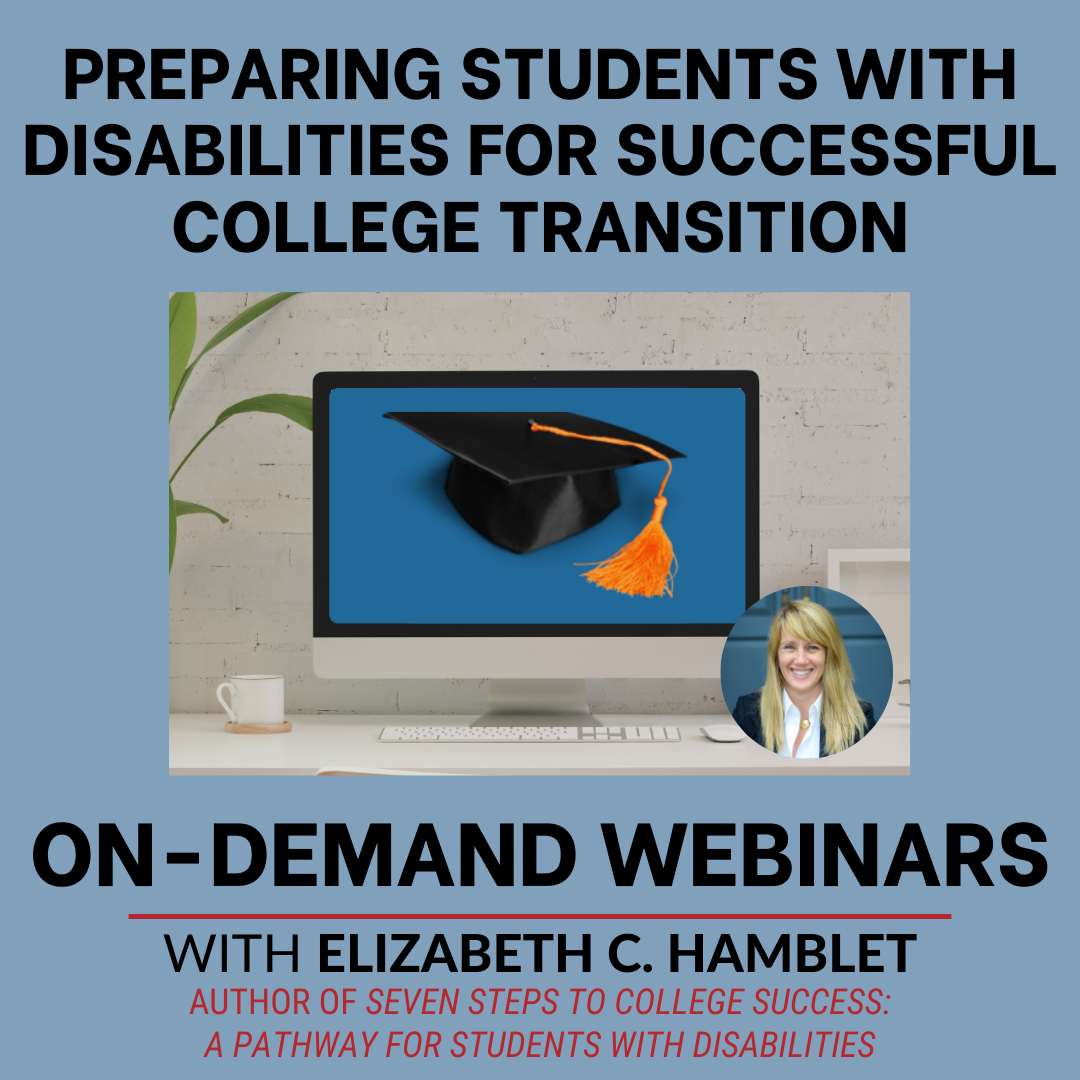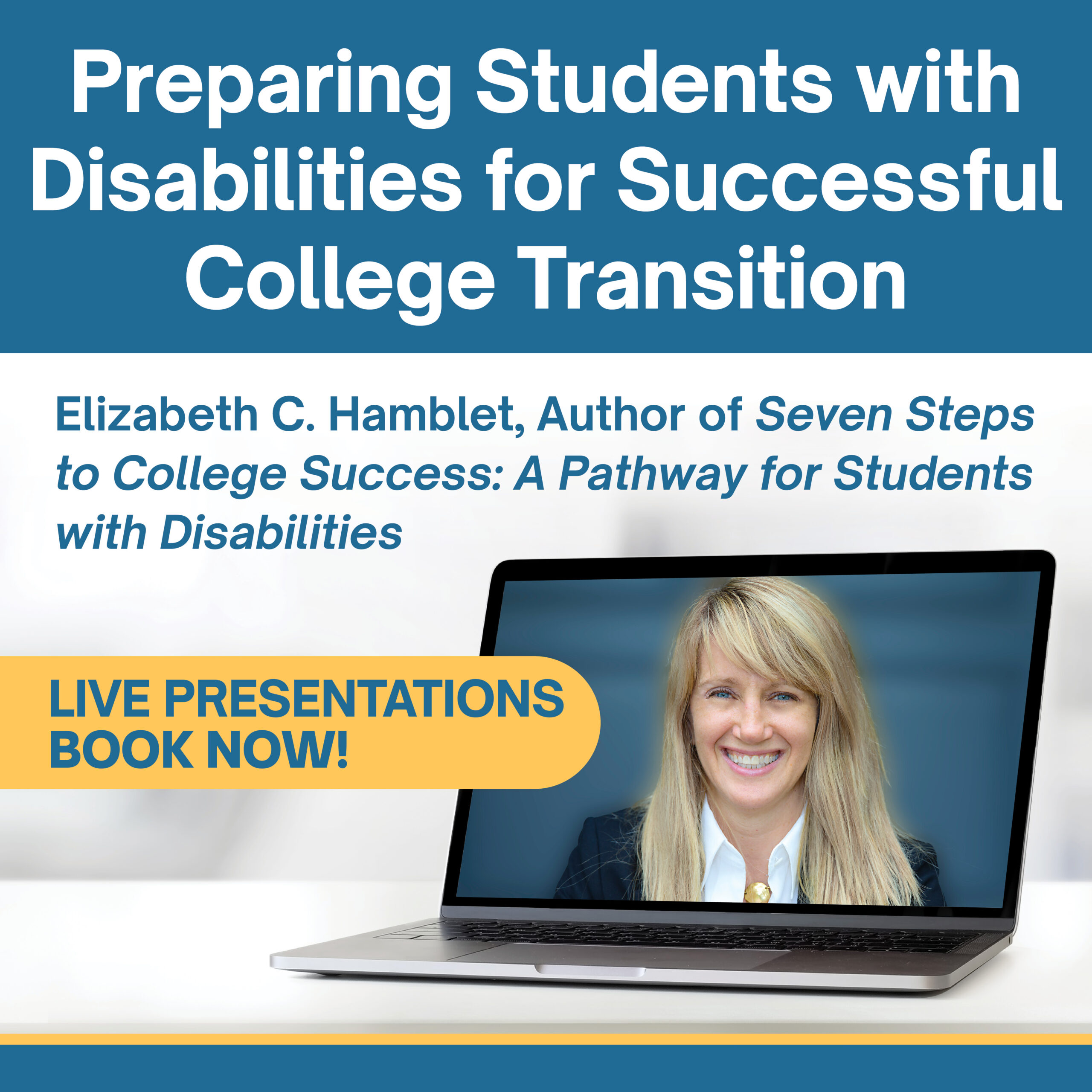Introduction
Students with mental health disabilities may be academically prepared for college, but they also need to be ready to function independently and meet behavioral and attendance standards. When I was developing my book, I interviewed Laura Di Galbo, an adjunct professor in the Department of Counseling Education and Family Therapy at Central Connecticut State University who is also a consultant specializing in helping these students. She offered tips for parents and professionals to help students prepare for college success. [You may also want to read the blogpost with Di Galbo’s college search advice.]
Work on Both Non-Academic and Academic Skills
IEP teams (including school personnel, parents, and students) or the group concerned with 504 plans need to think about diminishing emotional supports as students move through high school, including aides who assist in the classroom and who walk students around the building. But while they do this, someone (either the school professionals, if appropriate, or the outside treatment provider) needs to teach students strategies for stress management and coping skills they can use in the academic and social setting at college.
Sometimes, adults and parents supporting students may think that their intelligence will carry them through college. But they have to look at their “soft skills” – how well they organize, plan, get work done in time, etc. Schools, parents, and outside professionals should work together to make a plan to teach students these skills.
Plans should also address academics. If professionals and parents believe that students are equally able to achieve as everyone else, then they have to do the same work as everyone else. High schools have a responsibility to get students to a level that they can function at the academic level expected at college.
Of course, it is important to separate the mental health disability from any possible cognitive issues, i.e., learning problems. If parents believe that their student can’t do something particular, they need to work with the school to figure out whether students are struggling with the content or lack the academic skills they need.
For example, rather than just having students hand in a completed paper when it’s due, teachers should meet with them over time to make sure that they can identify any functional impairments in students’ writing skills. If a particular strategy is uncomfortable, adults should try to find one that will work for students and allow them to complete their work. It can be difficult to put these students, many of whom are already struggling, but if adults don’t do this, they risk throwing them “off the cliff” in college when they’re not ready to fly. The earlier the preparation for transition starts, the better.
Make Sure Plans Are Applicable Across All Environments
Any plan should include a multiple-domain strategy. The team should identify students’ functional problems (e.g., organization) in every environment – home, school, activities, etc.
Do some behaviors occur in one setting but not others? Strategies should address this, and everyone involved with these students has to play parallel and collaborative roles and adhere to the plan, to make sure that students develop these skills and recognize the need to utilize strategies in all environments.
For instance, if the paraprofessional takes a student out of the room when it looks like he will scream and the parents will leave the neighbors’ house in these instances, the goal should be for the student to eventually know when they’re going to scream and remove themselves. And they needs to exercise this strategy at home, school, and anywhere else they go.
Knowledge of the College Environment Should Inform Planning
The reason these things are so important is because – once students leave the K-12 environment – the rules and expectations change. Colleges have behavior codes, and disabilities do not “trump” behavior requirements there; students can be dismissed from a class for being disruptive and/or be dismissed from school, depending upon the seriousness of the violation.
Accommodations may be made available to help the student comply with behavior code, but all students, including those with mental health disorders, will be required to follow the code. Also, if students hope to attend a traditional four-year college away from home, they must have strategies for coping with non-academic environments and situations at school as well as with the classroom environment.
Plans will be more effective if IEP team members and guidance counselors who serve as case managers for students on 504 know what students should expect at college. They should contact some local schools’ offices to learn what accommodations they typically offer. They might be surprised by what they learn.
For instance, some colleges have found that extended time is not a helpful accommodation for some students with mental health disabilities. This accommodation may actually exacerbate anxiety and depression instead of accommodating for it. Therefore, the college might suggest “broken time” instead (i.e., occasional breaks during tests where the clock is stopped).
Attendance requirements for class may be adjusted to a certain point for these students, but there will be a limit (both for not attending class at all and for how many breaks students can take during a class and how long they can be).
Once they know what might or might not be available, team members will be positioned to help chart a course for students’ high school plans to try to move them eventually to using only what may be available to them at college.




